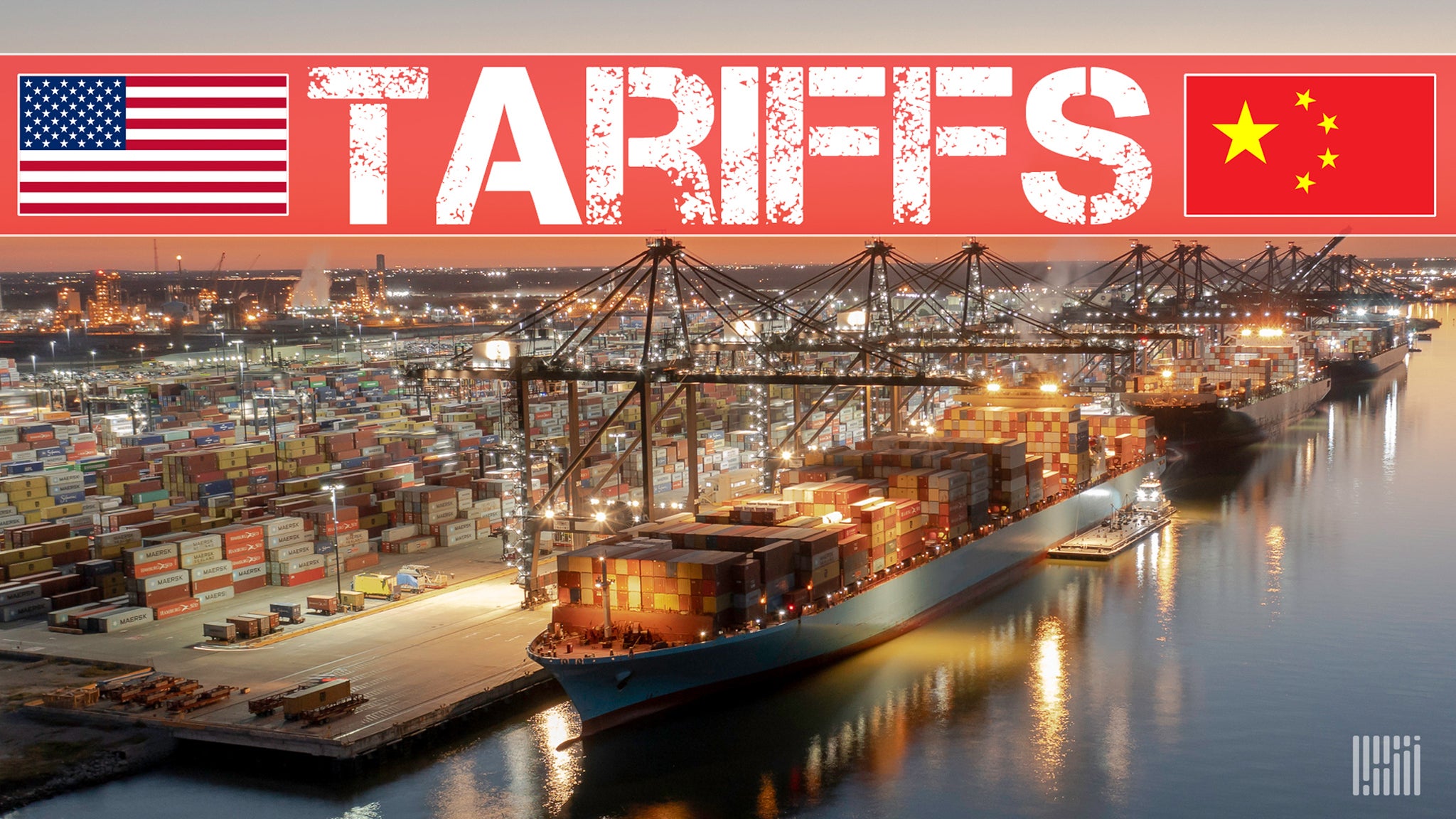As shippers adjust to tariffs, the message at Momentum is: Don’t forget the TMS
Transportation management systems are going to play a big role for shippers dealing with tariff wars, says logistics expert Bart De Muynck. The post As shippers adjust to tariffs, the message at Momentum is: Don’t forget the TMS appeared first on FreightWaves.

LAS VEGAS – Customers using Manhattan Associates’ transportation management system fall solidly in the shipper bucket of the three-way carrier/shipper/3PL divide, and the uncertainty they face with both current and looming tariffs was a major part of the discussion at the company’s Momentum conference.
The title of Bart De Muynck’s presentation was blunt: Is your supply chain agile enough to handle tariff changes? De Muynck, a longtime logistics executive with stints at Project44 and Gartner, among other companies, didn’t offer an answer as to whether he believed most shippers were ready to deal with tariffs.
But he made clear that business as usual was not likely to work as the uncertainty of the size and incidence of tariffs – where they hit – puts pressure on shippers.
De Muynck’s presentation was part of the Supply Chain Execution track at Momentum, a gathering of the company’s customers and partners. But Manhattan Associates’ (NASDAQ: MANH) TMS was the key focus of his presentation.
De Muynck identified five key areas where he said shippers dealing with fallout from tariffs should look to their TMS to help weather the storm: real-time rate comparison, volume shifting, strategic rerouting, carrier flexibility, and freight audit and visibility (which he later said would grow alongside the other changes that might be undertaken to adapt to a world of tariffs).
Actions to take for each of the five can overlap but all came down to the same idea: These issues are likely to become acute, and solving them could require a new approach toward maximizing the capabilities of a TMS.
For example, rate management when De Muynck was at PepsiCo was an exercise that might occur every few years. He used the example to note that in volatile times, such as those brought on by the arrival of steep tariffs, old ways can’t be relied upon.
Carrier flexibility is required because “that carrier you’re using now might not be available tomorrow,” De Muynck said. The volatility in the pool of carriers may conflict with what he said was a preference that shippers may have for using a mostly consistent group of carriers.
“But with all that volatility, that’s not always feasible,” he said, particularly if a company starts shifting modes to minimize the impact of tariffs.
That may mean accessing spot rates, De Muynck said, even if that’s outside the norm for a shipper. But if going down that route is in reaction to tariff disruption, he added, “you’re not going to be doing that for months, but it’s just for a small period of time.” That might involve dealing with large volumes of shipments before the impact of a tariff deadline.
Dynamic rate management would involve comparison of data that can be found in services such as SONAR. Static thinking might ask, De Muynck said, how a TMS can assist with a rate that a company already has negotiated, or as he described it, a company looking at a rate and saying “Well, we negotiated a rate, and that’s just what we have.”
But today, De Muynck said, a TMS has the capability to process data on rates and routes, and run scenarios to minimize transportation costs while also taking the impact of tariffs into account. Transportation managers should work with their planning team, “and say to them, ‘What else could happen? Where are you guys thinking of replenishing product from?’”
Changes driven by tariffs could also involve a company’s own manufacturing, De Muynck said. Data from that also could be pulled into the TMS.
The end goal, he said, is to use the TMS to model tariff scenarios and determine “what is the impact and how would we execute on it? How do we reengineer some of our routings based on some of the things we’re seeing?”
All of that would fall under what De Muynck said would be the challenge in front of any company impacted by tariffs: “We planned to do things one way. Now that situation has changed.”
Given that his address was being made at a conference hosted by a TMS supplier, the key message after this review of “agility” that shippers will need in the tariff era was that learning to use the capabilities of a TMS to work with all these variables is a must.
But it can be a hard sell. De Muynck said when he was at Gartner (NYSE: IT), a major research firm that among other activities studies freight technologies, he needed to convince TMS users that it could be an advantage. The pushback he would get, De Muynck said, was that if a company’s competitors all had a TMS, how could there be any advantage?
Both De Muynck and Bryant Smith, the director of product management at Manhattan Associates for its TMS offering, spoke of the capabilities of Manhattan Associates’ TMS as the route to breaking out of that stalemate.
In a separate interview, Smith said the architecture of the Manhattan Associates TMS allowed expansion into new services by adding capabilities that he likened to Lego pieces, “composing the TMS that you need.” The more formal term is microservices platforms.
Smith said a microservices platform can be used to put out a “micro-bid” for a lane that might only be coming up short term to deal with tariffs. “You don’t want to run a whole networkwide RFP,” he said. “You would just want to isolate it down to certain parts of your supply chain.” Capabilities in the Manhattan Associates TMS allow that, Smith said, “to be more precise and pointed in what they’re trying to go after.”
Or as De Muynck said of that functionality, “You can use your custom workflows, and that’s where it’s different than, well, everyone has the same TMS.”
More articles by John Kingston
Manhattan Associates rolls out new supply chain offerings at CEO’s debut
Connectivity, generative AI’s impact key supply chain software themes at NRF ’25
Manhattan Associates’ growing supply chain problem: Slow-closing software deals
The post As shippers adjust to tariffs, the message at Momentum is: Don’t forget the TMS appeared first on FreightWaves.
























































































































































